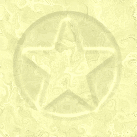 Wondering what Paganism is all about?
Wondering what Paganism is all about?
 Wondering what Paganism is all about?
Wondering what Paganism is all about?
Knowing that many people are unsure of what Paganism involves and that some are even worried about it being on campus, I have prepared this brief outline of Pagan beliefs.
Paganism is a valid religion, just as Buddhism, Judaism or Christianity. It is descended from the indigenous pre-Christian religions of Britain and many other countries. Just as in Christianity, you have Catholics, Evangelists, C of E, Calvinists etc, so we have different disciplines too - people from any of these are more than welcome to join the Magick and Pagan Society (yes, the ?k? is supposed to be there, it distinguishes our magick from the conjuring, rabbits out of hats variety). Below, I have tried to give you a rough idea of what the predominant ones involve (by predominant, I mean on campus, different beliefs are more prominent in different parts of the world!) - however, Paganism is not an organised religion and as such, almost every Pagan will tell you something different, that is perfectly normal and a sign of a religion that has developed since well before Christ came to earth.
Paganism
- This can be an all-encompassing term for every Pagan religion or it can be the title you use to describe yourself. In the society we are all Pagans - this means we celebrate the seasons and their changing with the greater and lesser Sabats - this involves no sacrifice, devil worship blood-letting etc. On that note, we do not believe in the devil, therefore we do not worship/invoke him - the devil is part of Christian and Jewish beliefs, (maybe others too, I don?t pretend to know everything) but not ours. We believe in the oneness of nature and humans, worship both Gods and Goddesses (some view them as actual entities, others as flows of energy) and generally celebrate life. Celebrating life means that we have our own rites of passage (cue partying!), do not stigmatise sex in the same way as many religions (no - this does not mean orgies all round, just celebrating that it is normal between two consenting adults!), we also see the seasons as the life cycle of the earth. Most Pagans follow a particular path, meaning that their deities are taken from a particular mythology - for example, Nordic, Celtic, Roman, Ancient Egyptian etc. We are often less scared of death as most of us believe in reincarnation - but this does not mean we regularly make contact with spirits as we recognise the inherent dangers. Most of us believe that what you send out into the world, comes back to you threefold - a good reason not to hurt others or the planet we live on. Pagans may be involved in ritual magick, Shamans are usually Pagans, many Druids are Pagans but this doesn?t mean all are. As you can see, many different ideas are involved.Wicca
- Wiccans are Pagans too and there are many different ideas about how the concepts involved have come together - it is however generally accepted that it descended from ancient Pagan Witchcraft but brought together by Alexander and Gardner into two main branches of Wicca. Ideas from many religions from Buddhism to Shamanism have come together in Wicca, so it is truly a world religion. The Wiccan Rede states that "An it harm none, do what you will". This combined with the law of threefold makes Wiccans generally very considerate people. Yes they do often do spells but as you can guess, mainly for the good of others, never to harm the world or the people in it.Eclectic Witches
- Though some will disagree with me here, I am going to go out on a limb and say that Wicca and Pagan Witchcraft have much in common. They ultimately share the same roots but eclectic Witches (as the name suggests) draw their inspiration from many different traditions, be it Celtic, Gypsy, Italian - all these have their own witchcraft traditions. They also celebrate the Sabats and Esbats (full moons) - some work in covens, some as solitaries (hedge-witches). We don?t tend to use the term black/white Witch as there are many different degrees of good and evil and none is absolute. We do not advocate using magick to change the natural order of things (this would require a great deal of power anyway) and most eclectic Witches still follow the threefold law.I can?t pretend to have explained Paganism in its entirety; it takes a lifetime of dedication to even come close. What I hope to have achieved is a slightly fuller understanding from non-Pagans on campus and put to rest some people?s fears. I know that I haven?t included all Pagan persuasions and apologise if someone feels left out or misrepresented - these are mainly my views, I can?t account for everyone. If you have any questions, please email the group on
UniSwiccan@yahoogroups.com and I?m sure one of us will be happy to answer.Claire.
P.S - The Pentacle  is our symbol (like the Star of David or the Cross) and is not a symbol of the devil (I?ve already told you this is impossible). It symbolises (in brief) the four elements (earth, air, fire and water) and the spirit/ether.
is our symbol (like the Star of David or the Cross) and is not a symbol of the devil (I?ve already told you this is impossible). It symbolises (in brief) the four elements (earth, air, fire and water) and the spirit/ether.

Images used on this page are used with kind permission from: http://www.paganpath.com and all copyrights are retained by them.